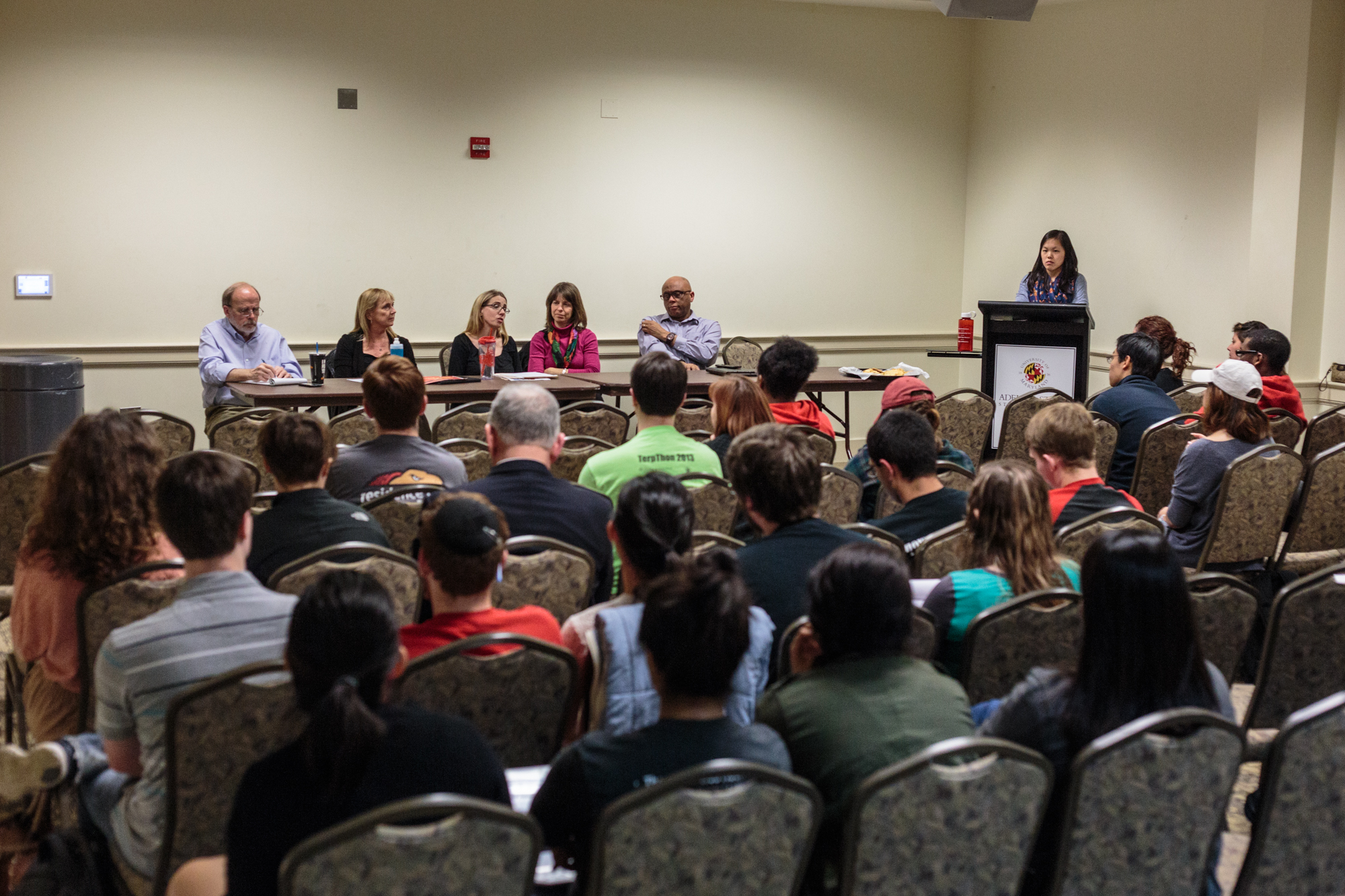University of Maryland students questioned Dining Services officials at a town hall event Tuesday with lingering concerns about the university’s switch to an anytime dining system in the fall.
About 40 students attended the event, which the Residence Hall Association holds every semester to give students the opportunity to talk directly to officials from several university departments, including the Department of Resident Life, the Department of Transportation Services and Dining Services, which received the bulk of the attention.
The new dining plan will eliminate dining points, Terp Bucks and carryout next semester.
Dining Services Director Colleen Wright-Riva announced the department will give 80 dining dollars — the equivalent to Terp Bucks — to current students with a meal plan next semester to “acknowledge the inconvenience” of this change.
Sophomore finance major Daniel Katz said he attended because he has a friend who was upset about the elimination of carryout options.
“We don’t have an answer for that yet,” Wright-Riva said to Katz. “It’s compelling to us, and we are worried about it. We cannot stop moving forward, because we haven’t solved that piece of the puzzle yet, but we will be looking at possibly finding that a better situation.”
She suggested students look to adjust their schedules to find time to eat meals during the 17 hours the dining halls will be open in the fall. The dining halls will open at 7 a.m. next semester, a half hour earlier than they currently open.
Students also questioned the future of Adele’s in Stamp Student Union, which currently takes payment in the form of resident points. Although Adele’s will accept dining dollars for lunch next semester, Wright-Riva said she is unsure whether Adele’s will remain open for dinner in the fall.
Sophomore Ashley Vasquez said she was disappointed that students will no longer be able to use the dining halls as a social space because individuals will have to pay — via hand scan — to enter the building.
“I love the unlimited dining option,” Vasquez, a sociology major, said. “I think it’s a great plan, but I think that it needs a lot of adjustment.”
Wright-Riva said Dining Services will try to encourage social spaces outside the dining halls.
“It’s tricky,” she said. “It’s one of those trade-offs. … We really have to make sure our cafes have the social experiences you want.”
Wright-Riva also said Dining Services will plan on using the reusable OZZI boxes in the dining halls but is unsure how. At the end of this semester, students might be able to redeem their OZZI boxes or coins for some value, she said.
Each of the menus in the dining halls will be adjusted to better fit the new plan, she said.
“All of those menu changes are coming from student feedback,” she said. “We think it’s going to be jamming.”
Students also expressed concerns over a lack of sustainability efforts in dorms and asked about the compost program in Easton and Chestertown halls.
Residential Facilities Director Jon Dooley said the pilot program to introduce composting to the residence halls has been successful. He said employees are looking to expand the program to several smaller dorms on South Campus.
The university also plans to introduce a bike-sharing program next month, which coincides with Bike Safety Month, DOTS Director David Allen said.
This program will allow students to rent bikes on the campus, he said.
“It’s taken two years, and we signed the contract with the City of College Park last week,” Allen said. “So within this academic year, we will have a bike share on campus.”



